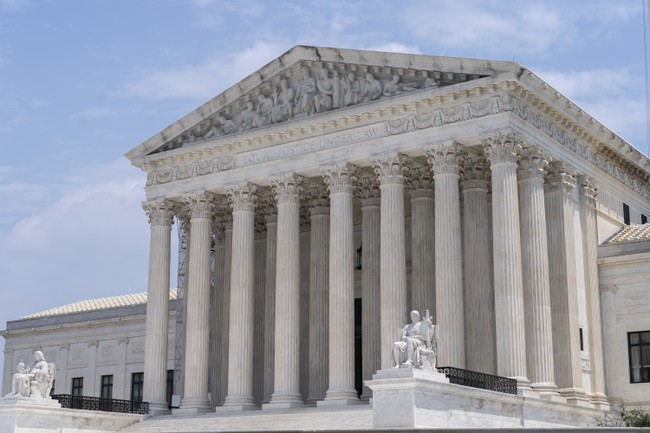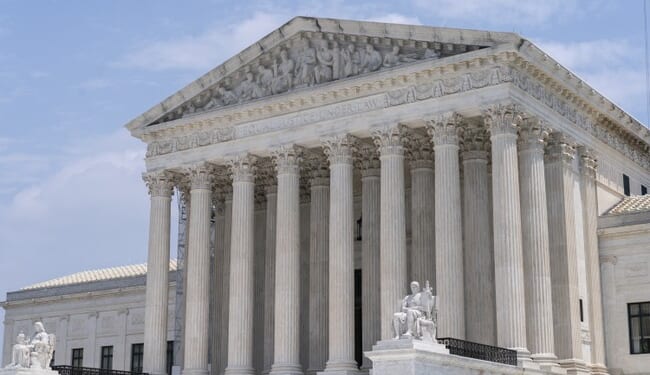
On the surface, it seems like an innocuous court case. A group of commercial fishermen are objecting to a rule by the National Marine Fisheries Service (NMFS) that forces them to pay for an NMFS employee to be on their vessel to enforce regulations.
But the required fee is only supposed to be imposed in three narrow circumstances, and none of those circumstances apply to the fishermen. The case has enormously far-reaching implications. The suit challenges the so-called “Chevron Deference” that allows regulators to radically expand their power and impose enormous regulatory burdens on Americans.
The theory that undergirds Chevron Deference is that Congress doesn’t have the time or resources to enforce their vaguely worded laws, leaving it up to federal agencies to fill in the blanks.
If ever the adage “Give them an inch and they take a mile” had any meaning, it applies to federal regulators aggrandizing power unto their own little fiefdoms.
Chevron arose when judges were willy-nilly substituting their policy preferences for those of the elected branch. But the doctrine has no constitutional basis, and it defies the Administrative Procedure Act, which requires that “the reviewing court shall decide all relevant questions of law, interpret constitutional and statutory provisions, and determine the meaning or applicability of the terms of an agency action.”
As the fisheries argue, the doctrine also violates the Constitution’s Due Process Clause “by requiring courts to systematically place a thumb on the scale against the citizenry.” While agencies’ purely factual findings may deserve judicial deference, requiring courts to defer to regulators on the law undermines the separation of powers.
Just because the justices have the opportunity to vastly curtail the ability of the federal government to regulate commerce doesn’t mean that they will. The left is going bonkers over the possibility that the regulatory state will be destroyed by right-wing justices doing the bidding of petrochemicals billionaire Charles Koch.
The Supreme Court doesn’t like getting too far out in front of the times, especially when it comes to regulation. The court might modify Chevron Deference, but it would be a surprise if the justices got rid of it entirely.
Cause of Action, a part of Koch’s vast legal network connected to his Americans for Prosperity, is arguing the case before the Supreme Court pro bono.
Ryan Mulvey, counsel for Cause of Action and one of the lawyers litigating the case before the Supreme Court, said the focus “should be on the fishermen and what they are fighting.”
“This case is about the livelihoods of hard-working, family-run fishing companies that are under threat because of unconstitutional overreach by the government,” Mulvey said.
That’s true as far as it goes. But Mulvey is being disingenuous by not admitting that Cause of Action didn’t see the bigger picture in this case and jumped on board with both feet.
Mulvey isn’t wrong when he claims that the “case is about the livelihoods of hard-working, family-run fishing companies.” The fee paid to keep a “monitor” for NMFS on board “cost fisheries $710 a day and reduce annual financial returns by about 20%,” according to the Wall Street Journal.
The current Supreme Court has danced around Chevron for several terms. In 2022 it overruled a D.C. Circuit decision that upheld a hospital drug payment rule under Chevron but declined to overturn the precedent.
The Court has relied instead on its major questions doctrine to strike down such executive overreach as the Biden student loan forgiveness. But why should federal agencies benefit from a lower standard of judicial review for regulations that judges deem minor but which are enormously consequential for particular parties?
Chief Justice John Roberts would dearly love to get one of the court’s liberals to sign on to whatever decision comes out of the negotiations. That’s why I think the decision will be narrower than many on the right would like. The fishermen will win, but the Chevron Deference doctrine will remain intact with some modifications.

